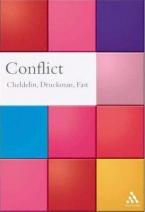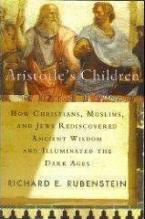Faculty Books Published
Conflict: From Analysis to Intervention
Edited by Sandra Cheldelin, Daniel Druckman, and Larissa Fast

This major new textbook analyzes the emergent role of conflict analysis and resolution. Cheldelin, Druckman and Fast are international experts in the field of conflict. Covering theory, research and practice, the contributors to the book provide a comprehensive typology of conflict, as well as an in-depth analysis of the structural, strategic and cultural factors which influence conflict. They explore its management and resolution, paying particular attention to the concepts of negotiation, mediation and peace-building.
Part I Diagnosing Conflict
1. Typology – Dennis J. D. Sandole
2. Sources – Richard Rubenstein
3. Dynamics – Tamra Pearson d’Estree Part II Influences and Context
4. Situations – Daniel Druckman
5. Identities – Peter W. Black
6. Culture – Kevin Avruch
7. Structure – Howan Jeong
8. Institutions – Richard Rubenstein Part III Intervening in Conflict
9. Negotiation – Daniel Druckman
10.Informal Roles – Johannes M. Botes
11.Mediation and Arbitration – Sandra Cheldelin
12.Problem Solving – Christopher Mitchell
13.Facilitation and Consultation – Sandra Cheldelin and Terrence Lyons
14.Structual Transformations – Johannes M. Botes
15.Peace Building – Howan Jeong
16.Toward Integrated Knowledge – Daniel Druckman
Aristotle’s Children: How Christians, Muslims, and Jews Rediscovered Ancient Wisdom and Illuminated the Dark Ages
Written By Rich Rubenstein, ICAR Faculty Member

This book documents the intellectual explosion that transformed Europe in the Middle Ages and follows a set of ideas as they course through the west. These ideas triggered student riots and heresy trials, prompted Pope Innocent III to recognize the Franciscan and Dominican orders, and set the stage for today’s rift between reason and religion.
This new perspective came from Aristotle. His work, like the rest of Greek culture, had been lost in the centuries after the fall of Rome, when the Greek language was forgotten. But in the Muslim World, the wisdom of the Greeks was never lost and contributed to the flowering of Islamic culture.
Then in the twelfth century in Toledo, Spain, groups of Muslim, Jewish and Christian scholars collaborated on translating the ancient classics; and ideas long forgotten galvanized Europe, turning Western thinking away from the supernatural world and toward the world of nature. With their optimistic view of human nature, these concepts sparked fierce controversies in the universities and caused major changes in the Catholic Church.
Rubenstein, author of When Jesus Became God, takes the reader back in time to the translation center in Toledo and to the great universities in Paris, Padua and Oxford. He shows how the Catholic Church adopted this new philosophy and struggled to reconcile science and religion and how Western thinking was set on the path it has followed ever since.
Aristotle’s Children
An Interview with Richard Rubenstein
[This is a summary of an interview which aired on Public Access Radio in Northern Virginia on September 2, 2003.]
Q: The subtitle of your new book refers to “ancient wisdom” that was somehow rediscovered in the Middle Ages by Christians, Muslims, and Jews. What was that ancient knowledge, and how was it brought to light?
Rubenstein: In the eleventh and twelfth centuries, Christian knights reconquered most of Spain from the Muslim rulers who had occupied it for more than four hundred years. Close behind them came Roman Catholic priests and scholars, and it was they who made the most significant intellectual “find” in Western history – perhaps in world history. The Europeans, whose civilization was quite undeveloped compared to that of the Muslims, were amazed to discover that their highly cultured enemies had translated all of Aristotle’s surviving works into Arabic – about 3,000 pages of advanced natural science, social science, and philosophy that had been lost to the West for centuries.
Not only that, the libraries of Spain also contained legendary works by other Greek thinkers as well as commentaries and updates on all this material by Arab and Jewish philosophers such as Avicenna, Averroes, and Moses Maimonides. Wise churchmen recognized the value of these discoveries and organized multicultural teams to translate them into Latin. In Spain, Provence, and Sicily, Roman Catholic and Orthodox Christians worked with Muslim and Jewish scholars to make this treasure-trove of learning available to Europeans.
Q: What was the initial impact of these translations?
Rubenstein: The Christians’ first reaction was awe and wonder. Educated Europeans (most of them clerics) couldn’t wait to get their hands on these manuscripts – and it’s easy to see why. Aristotle and his commentators had written on every subject imaginable, from biology and physics to metaphysics, logic, ethics, politics, and even art. The West was just awakening from that long period of confusion and stagnation people call the Dark Ages, and students flocking to the new universities demanded access to the “new learning.”
Q: But the Church operated these universities. How did Catholic leaders feel about all this new material?
Rubenstein: Early in the thirteenth century, they became terrified by it. After all, Aristotle was no Christian. His God (the “Unmoved Mover”) was an abstract principle, not the personal God of Scripture who created the universe and who intervenes in history. The Philosopher thought that nature operated according to its own laws, that humans were essentially reasonable creatures, and that they could understand the universe and live happy, useful lives without the aid of a higher power. When a few Christian scholars used his ideas to reach wildly heretical conclusions, the bishop of Paris banned all of Aristotle’s “nature books” at Europe’s leading university, the University of Paris.
Q: And did the ban stick?
Rubenstein: Not at all! With the West coming alive economically and culturally, and there was no way that young people seeking an education could be stopped from reading these books. A decade or two after it went into effect, the ban became a dead letter, and by the 1250s, Aristotle’s complete works were required reading in all the major universities. What accelerated this process was the discovery by members of the new Catholic orders, the Dominicans and Franciscans, that Aristotle’s ideas could be tremendously useful in the fight against anti-Catholic heretics like the Cathars of southern France. Far-sighted conservatives like Pope Innocent III therefore redefined the problem. Innocent recognized that the Church could not turn its back on the new science and philosophy without forfeiting its claim to be the intellectual leader of Europe. The issue wasn’t Aristotle or no Aristotle. It was how to reconcile the truths of Aristotelian science with the fundamental doctrines of Christianity.
Q: Were these opposed worldviews really reconcilable?
Rubenstein: The discussion of that question hasn’t stopped since the thirteenth century! Some of medieval Christendom’s greatest minds, like Peter Abelard and Thomas Aquinas, thought so. Others, such as Bernard of Clairvaux and William of Ockham, strongly disagreed. I wrote this book because I wanted to tell the story of these great debates, fought out on such a high intellectual level by such colorful, principled, God-intoxicated characters. The issues that concerned them most – the eternity of the universe, man’s capacity for happiness, the autonomy of nature, the immortality of the soul – are still undecided. But the Church’s capacity to manage these conflicts, which I hadn’t expected to discover at all, made Europe’s first “scientific revolution” possible. Galileo and Isaac Newton, even Francis Bacon and Rene Descartes, were not so much the enemies of scholastic science as its heirs.
Q: You are a professor of conflict resolution and public affairs. What lessons do you draw from this story?
Rubenstein: Here are a few. First, the cultural battles that occupied educated Europeans in the High Middle Ages resemble in many ways the struggles that modern non-Western peoples are going through now. Europeans then wanted to know how they could accept the best and truest ideas coming to them from the Arab East without losing their identity as Westerners and Christians. That is what people are doing, vis a vis the West, in the Islamic world, South Asia, East Asia, and elsewhere today. But medieval Europeans had the great advantage that no other power was in a position to dominate them militarily or dictate to them economically and culturally. We need to give other peoples the same freedom that we once enjoyed and used to re-create our own civilization.
Second, writing this book turned my head around with respect to the relations between faith and reason, religion and science, in the modern world. I realized that the “primal myth” of modernism, the story of Galileo confronting his backward, superstition-ridden religious accusers, obscured an earlier, equally important story: the origin of modern rationalist thinking in the medieval universities. One thing history does is to provide us with alternative universes – it shows us that the social world we inhabit is not eternal, and that there are other ways of organizing our affairs. One sees that the current split between a religiously inspired “culture of the heart” and a science-based “culture of the head” is not inevitable. Once upon a time, spirit and reason engaged in a mutually enriching dialogue. That time may come again.
Finally, the conflicts described in ARISTOTLE’S CHILDREN were never “resolved,” if that means that they disappeared. Because they raise such fundamental issues about God, nature, and humanity, such conflicts are seldom terminated permanently – but they can be humanized. The Middle Ages were in many ways a violent, intolerant era. But one of my favorite stories of the period is about those two great adversaries, Bonaventure and Thomas Aquinas, the Franciscan conservative and the Dominican liberal, who disagreed vehemently about how to reconcile Christian and Aristotelian ideas.
One evening, Thomas and a young associate of his came to Bonaventure’s study to continue a debate that had pitted the two men against each other earlier that day at the University of Paris. They found Bonaventure, who was writing his biography of Saint Augustine, lost in a sort of trance or “rapture,” with his manuscript sitting upon his desk. For several minutes, Thomas observed the older man staring intently into space at something unseen. Then he turned to his associate, his finger raised to his lips. “Shhh,” he whispered. “Let us leave one saint to contemplate another.” Can we recognize, in a time of increasing religious passion and intolerance, that our ideological adversaries are no less human than we – that, so far from being icons of evil, some of them may even be saintly? Stories like this do not provide scientific answers to such questions. Still, they give us hope.



